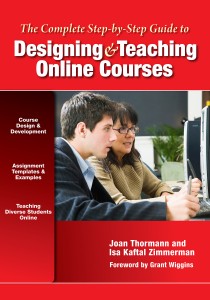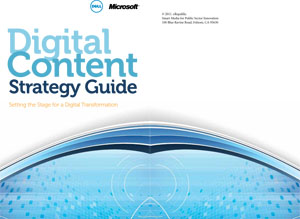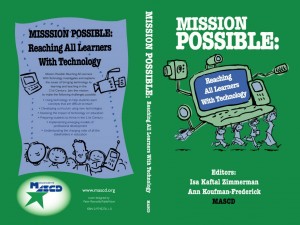Specific Projects
_______________________
The Boston Pledge (http://www.thebostonpledge.org) mounted a conference on October 8, 2016 at the Fletcher School of Tufts University, titled “Is Education at the Point of Inflection. 2016-conference-flyer. I spoke.
As I planned my trip to Iowa in October of 2014, I started to collect resources and jot down ideas I wanted to share. In the Boston Globe Parade section of August 3, I found an article with an intriguing title: Building a better teacher. It focuses on the teaching of mathematics as the example.
When I googled the title, I found a book called Building a Better Science Teacher.
The Global STEM Education Center (formerly GTEC now GSTEM): The latest information about the program was disseminated at the Building Learning Communities Conference, July 2014 at the Park Plaza Hotel in Boston. There were two presentations: BLC 2014 LS Presentation. Larisa Schelkin led on the first and I led on the second:BLC 2014 Presentation_IKZ.
TechHub Collaborative: A group formed a few years ago called the TechHub Collaborative (all volunteers) is interested in developing/promoting Computer Science (CS) teaching/teacher standards for learning and licensure. A baseline piece of information that was needed (the number of MA middle and high schools offering computer science has been collected through the assistance of the MASS (Massachusetts Association of School Superintendents). While not comprehensive (not every system replied) the data show a huge variation across the state in how Computer Science is conceptualized and offered in MA.
The group is now called MassCAN and has recently been mentioned by ASCD in SmartBrief, May 20, 2014:
Massachusetts schools are integrating computer programming into the K-12 curriculum, reflecting a nationwide push to recognize coding as an essential 21st-century skill. Thirty districts in the state are partnering with Code.org to teach computer-science skills. “Computer science is a natural outlet to exercise critical thinking and problem-solving skills, and it enhances mathematics, engineering and robotics,” said Leo Brehm, director of information technology for Newton Public Schools.
The topic has become a hot one with people indicating they think we can start to teach coding in Kindergarten. How different from the debates about whether there ought to be computers in elementary school! And David Thornburg’s advice to buy the latest for the youngest now seems tame.
____________
The Massachusetts Academy of Sciences‘ (MAS) Project Engage is focused on bringing together STEM higher education faculty with K-12 faculty to develop ways to improve student learning of STEM at all levels and thus increase the retention of students in the STEM pipeline. A conference was held on June 7, 2011in Sturbridge, MA. This Presentation June 7, 2011 was given.
Presented at the National Science Teachers Association (NSTA) in San Francisco, March 12, 2011 on the topic of Using Interactive Teaching Tools to Teach STEM. PDF versions of the Elementary and Secondary talks are available upon request..
Presentation to the Gloucester Public Schools on January 25, 2011: Essential Learning Skills in the 21st Century: The STEM Context Gloucester STEM Presentation 1_25_11 (The cartoon is from the Boston Globe).
Knowledge and Skills of Professional Teaching
The Department of Elementary and Secondary Education has been collaborating with Working Group for Educator Excellence (WGEE) on a joint project to create a detailed and specific inventory of the great range of knowledge and skills that might be a part of the teacher’s repertoire. This dynamic tool which will be an ever-expanding resource, will be organized by essential domains around which there is professional consensus. One domain which is essential today and tomorrow is the use of technology for teaching and learning. The KSPT Technology Draft so far is available from this pdf. Go to http://www.wgee.org/ for more information.
Working Group for Educator Excellence (WGEE) For eight years this collaboration of all the stakeholders has been engaged in developing a system to be used in the Commonwealth to support and retain high quality educators. This paper “briefed” interested legislators on February 24, 2010 at the Statehouse. Briefing re Educator Excellence” Currently, 2013, it is proposing enabling legislation.
Presentation at Ayer/Shirley Public Schools Professional Development Day, Learning and Teaching in the 21st Century, Ayer/Shirley STEM, October 8, 2010.
GTEC (Global Engineering and Technology Consortium) of K-12 schools, higher education institutions and engineering and technology corporations was formed to address an urgent need for the development of the next generation’s global engineering workforce competence and to ensure effective international engineering teams. It proposes to develop a diversity curriculum and pilot authentic international engineering projects for teams of secondary school students in partnership with global engineering corporations and higher education institutions. GTEC_MassCUE October 2011 is the presentation given at the MASS/MassCUE Conference at Gillette Stadium on October 25, 2011.
GTEC now has several participants and partners:
- MassCUE is the fiscal agent.
- Franklin Olin College of Engineering (Needham, MA)
- Spirit of Knowledge Public Charter School (Worcester, MA)
- Dennis Yarmouth Regional High School
- Haywood College of Engineering (Stoke-on-Trent, UK)
- Keele University and Staffordshire University (UK)
- Parametric Technology Corporation (Needham, MA and Manchester, UK)
- KMA Diversity & Connecting the Differences Consultants
- Davis Square Research Associates
- November Learning
- The Collaborative for Educational Services
IKZ Advisors was lead consultant to Wheelock College’s Aspire Institute to develop recommendations about reforming educator preparation PK to grade 6 in STEM. The result is a report is entitled “Foundation for the Future.” The recommendations from the report are being considered for inclusion in the STEM state plan being developed by the Governor’s STEM Advisory Council, and by the Commissioner of Early Education and Care in MA.


